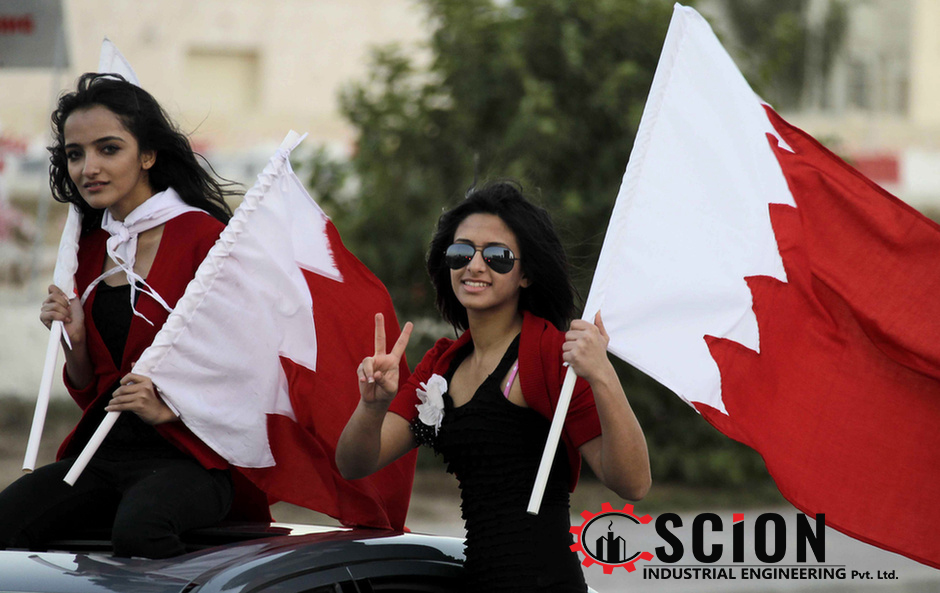More questions than answers from Bassil-Berri meeting
Parliament Speaker Nabih Berri is having trouble making up his mind. Or so it seems. On July 1, Berri and Foreign Minister Gebran Bassil struck an unexpected deal. The agreement was touted as a bulldozer clearing the final barrier that, for over three years, has blocked the conclusion of Lebanon’s first offshore oil and gas licensing round. The parties, however, have chosen a very odd strategy for building national consensus around their deal. By all accounts, they haven’t shared the details widely, and the terms of the deal coming from the speaker’s side vary depending on what you read. At the time of writing, this looks more like a media stunt than a news development.
Coming to terms
The search for oil and gas under Lebanese territory began before the territory was technically Lebanese. Some five years prior to Lebanon’s 1943 declaration of independence, the Iraq Petroleum Company drilled an onshore well. The company did not make any discoveries, but the search continued (both via drilling and surveying) until the early 1970s. In 1993, the government again began looking for hydrocarbons, commissioning a two-dimensional (2-D) seismic survey off the coast of Tripoli, in the north. Since then, oil stayed on politicians’ brains, but movement has typically been slow, with one exception: Najib Miqati’s 2011-2013 cabinet. With a newly minted offshore hydrocarbon law on the books, then-Energy Minister Bassil clearly made the creation of a Lebanese oil and gas sector a top priority, and the cabinet largely backed him.
Since 2013, it has been quite clear that one of the biggest barriers to getting the decrees passed lies in a disagreement involving Berri
In December 2012, after securing the cabinet’s approval, Bassil announced the appointment of six board members for the Lebanese Petroleum Administration (LPA), a regulator for the sector, which the 2010 offshore law called for. [By way of contrast, an electricity sector regulator called for in a 2002 law remains ink on paper to this day.] In February 2013 – only 80 days after its board was appointed – the LPA opened a pre-qualification round to select which international oil and gas companies would be allowed to bid in the first licensing round. The pre-qualification process went as planned, and in April 2013, 46 companies were given the green light to participate in the round, scheduled to open the following month. There was only one problem. Miqati had resigned at the end of March before much-needed work on oil and gas was finished. Most pressing were two decrees needed for the licensing round (one delineates Lebanon’s offshore blocks and the other includes a model contract to be signed between the state and companies keen to drill as well as details on how the bidding will happen and how offers will be evaluated). Shortly after Prime Minister Tammam Salam formed a government in February 2014, he tasked a ministerial committee with studying the decrees. They have yet to be approved.
Since 2013, it has been quite clear that one of the biggest barriers to getting the decrees passed lies in a disagreement involving Berri. The speaker wanted to open all ten blocks for bidding. The LPA, meanwhile, recommended opening only five, a position Bassil supported. In either scenario, fewer contracts would be signed than blocks put on offer. Announcing the Berri-Bassil deal, neither Bassil nor Berri’s confidant, Finance Minister Ali Hassan Khalil, mentioned anything about which blocks to open for bids. Speaking to Executive two weeks after the deal was done, Cesar Abi Khalil, a former Bassil advisor (currently counseling Energy Minister Arthur Nazarian), at first reads an amended version of the statement issued after the Berri-Bassil meeting.
“There has been an agreement on [an offshore oil and gas] licensing strategy,” Abi Khalil says. “The licensing strategy should ensure Lebanon’s rights to resources in our subsea, first [vis-à-vis] Israel, second Cyprus and Syria. It should ensure that the Lebanese government will maximize its profit from petroleum activities, and it will ensure the right environment for the licensing round to succeed.” Neither foreign nor finance ministers mentioned “licensing strategy” in their July 1 announcement. Even with that added detail, however, the deal still sounds vague. (Which party would agree to ceding Lebanon’s rights, minimizing the state’s take from potential resources and having an unsuccessful licensing round?) Indeed, Executive’s first question to Abi Khalil was: “So what does that all mean?”
“I think this is clear. This is the extent of the statement,” Abi Khalil replies, before elaborating diplomatically that Berri agreed to abandon an idea he had been promoting for about three years. The actual deal, Abi Khalil says, calls for opening fewer than ten blocks to bidding in the first licensing round.
Reading the tea leaves
Executive was unable to reach Speaker Berri or anyone who could answer questions on his behalf. On July 9, The Daily Star reported Berri had convinced Bassil to accept opening all ten blocks, the opposite of what Abi Khalil says the deal entails. On July 22, economist Marwan Iskandar wrote in An Nahar that the Speaker told him personally that the deal meant going with the LPA’s strategy of opening fewer than ten blocks, seemingly confirming what Abi Khalil says. Yet that same day, Al Arabiya English ran a piece again claiming the Speaker’s vision of offering all ten blocks had won the day.
Future Movement MP Mohammad Kabbani, who heads the parliamentary committee which deals with oil and gas, explains that his party has not been explicitly briefed on the deal since it was struck, but says his party is on board. “We have agreed to submitting ten blocks for licensing and signing only a few contracts. If this is the real agreement,” he says. According to Abi Khalil, that is not the deal, which seems to throw into question whether or not Future will accept it. Abi Khalil has not responded to follow up questions on why confusion and misinformation seems to be how the parties are communicating their deal.
Why now?
Putting aside the details of the deal for a second, Kabbani and Lebanese Forces MP Joseph Maalouf offered some insight as to why the deal came when it did. For three years now, Berri has been claiming that Israel is stealing Lebanon’s gas. He has never offered proof and the concept always seemed suspect on technical grounds. Lebanon’s neighbor has discovered gas in its offshore acreage. None of those discoveries stretch into Lebanese waters. Therefore, if Israel were truly stealing, the private company doing the actual drilling would have to employ expensive technology to drill past the Israeli fields on a blind, subsea search for Lebanese fields to the north. Not only is this costly and risky (i.e., no guarantee a Lebanese field would be found), if the private company were caught doing so, its reputation would be in the toilet at the very least. The only other way for Israel to steal Lebanon’s gas would be if the two countries shared a reserve and Israel began exploiting it first without agreeing how to split profits with Lebanon. Shared reserves are not uncommon (Iran and Qatar share the world’s largest gas field). None have yet been discovered between Israel and Lebanon. However, new data suggest the two countries may have a shared reservoir. This new data, coupled with fears that an Israel-Turkey reconciliation announced in late June means Israeli gas may soon reach a hungry European market via a pipeline to Turkey, prompted the oil deal, Maalouf and Kabbani say.
Walid Nasr, head of strategic planning at the LPA, refuses to comment on the political deal, but sheds light on the new data. Echoing Kabbani and Maalouf, he explains that in 2002, an American company called TGS conducted seismic surveys of Lebanon’s offshore. The company refused to give the Lebanese government the data back then, Nasr says, because the two did not have a written contract, only an oral agreement between the company and the then-minister of energy. Bassil sued in 2011, and TGS handed the data over recently, Nasr explains. TGS refuses to comment in an email exchange with Executive, but a paper on the company’s website confirms it shot over 2,000 kilometers of 2-D seismic in Lebanon’s offshore in 2002. Interestingly, the map published along with the paper seems to show that Lebanon’s seismic surveys stretch south into Israel’s offshore. Nasr says the interpreted data suggests Lebanon and Israel may have a shared hydrocarbon reservoir (2-D seismic cannot distinguish between oil and gas). Seismic surveys, however, are not perfect tools. They give indications of where oil and/or gas might be. Only drilling confirms what lies below, meaning what today looks like shared resources could prove to be nothing.
Unfinished business
Immediately after the deal, press reports claiming the decrees would be passed imminently were rife. Yet a number of decisions still need to be made. While Abi Khalil insists Berri pivoted from wanting to open all ten blocks for bidding, he admits the exact number was not decided on. Indeed, he repeatedly says “we have no religion” in the matter when asked if the LPA’s strategy of offering five will be the final strategy. Ditto the number of contracts to be signed. Fewer than the number of blocks offered, but how many? “We have no religion in this matter,” Abi Khalil repeats. Finally, given that the pre-qualification round happened three years ago, might another be necessary if some pre-qualified companies have lost interest in bidding or if new companies are eager to invest? Khalil says a second pre-qualification round could be a good idea, but insists his side has “no religion in the matter.” Where and how these remaining points open to negotiation will be discussed is unclear. Prime Minister Tammam Salam has not called for a meeting of the oil and gas ministerial committee to discuss recent developments. Nor has he put the oil and gas decrees on the cabinet’s agenda. In fact, he’s done little more than offer veiled criticism of how the deal was announced. During the July 1 press conference, when a reporter asked Bassil for details, he said that was not important at this stage as the two sides would now begin briefing others to build consensus. If such a roadshow is happening, it is one of the best kept secrets in Lebanon.
Source:http://www.executive-magazine.com/economics-policy/decoding-the-oil-deal



